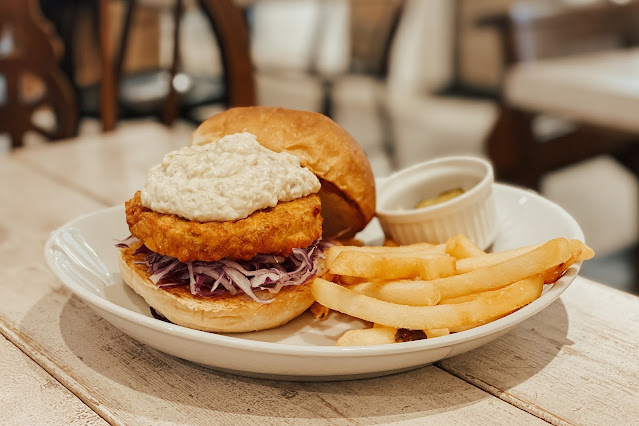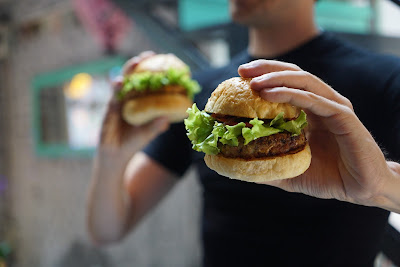"Discover the perfect plant-based binders for your vegan burgers, from flaxseed meal to chickpea flour. Create flavorful patties that hold together and delight your taste buds!"
The Vegan Project Global
As the popularity of veganism continues to rise, so does the demand for delicious plant-based alternatives to traditional meat dishes. One such dish that has gained significant popularity is the vegan burger.
However, creating a vegan burger patty that holds together and has a satisfying texture can be a challenge without the use of animal-based binders like eggs or cheese. Thankfully, there are several plant-based alternatives that can serve as excellent binders for vegan burgers.
In this nothing-but-the-facts article, we present 15 of the best binders for vegan burgers, offering a variety of options for creating flavorful and satisfying plant-based patties!
1. Flaxseed Meal: Ground flaxseeds mixed with water create a gel-like substance that works as an excellent binder for vegan burgers. It adds a nutty flavor and provides omega-3 fatty acids.
2. Chia Seeds: Similar to flaxseeds, chia seeds can be mixed with water to form a gel that helps bind ingredients together. They are rich in fiber, omega-3 fatty acids, and antioxidants.
3. Ground Oats: Finely ground oats not only add a subtle nutty taste but also help bind the ingredients together. They are gluten-free and provide a good source of fiber.
4. Chickpea Flour: Also known as gram flour or besan, chickpea flour acts as an excellent binder for vegan burgers. It adds a slight nutty flavor and boosts the protein content of the patty.
5. Bread Crumbs: Adding bread crumbs to your burger mixture helps absorb moisture and bind the ingredients. Opt for whole wheat or gluten-free bread crumbs, depending on your dietary preferences.
6. Potato Starch: Potato starch is a gluten-free option that provides excellent binding properties. It helps create a tender and moist texture in vegan burger patties.
7. Cornstarch: Cornstarch is a versatile binder that can be used in combination with other ingredients. It aids in moisture retention and gives a crisp exterior to the burger.
8. Mashed Potatoes: Cooked and mashed potatoes work wonders as a binder for vegan burgers. They lend a creamy texture and help hold the patty together.
9. Cooked Quinoa: Quinoa, a protein-rich grain, can be used as a binder in vegan burgers. Its texture and neutral flavor complement a variety of burger recipes.
10. Silken Tofu: Silken tofu can be blended and used as a binder to create a creamy texture in vegan burgers. It is also a good source of protein.
11. Cooked Brown Rice: Similar to quinoa, cooked brown rice can be used as a binder for vegan burgers. It adds a slightly chewy texture and complements various burger flavors.
12. Nut Butters: Natural nut butters like almond or cashew butter can act as binding agents. They add richness and enhance the flavor profile of the burger.
13. Coconut Milk: Coconut milk works well as a binder for vegan burgers, especially in recipes that incorporate Southeast Asian flavors. It adds a subtle sweetness and creamy consistency.
14. Tomato Paste: Along with adding a burst of flavor, tomato paste acts as a binding agent due to its thick consistency. It is a great option for tomato-based burger recipes.
15. Vegan Mayonnaise: Vegan mayonnaise can serve as an effective binder while imparting a creamy texture to vegan burgers. It also adds a tangy flavor.
Summary: Creating a delicious and satisfying vegan burger doesn't have to be a challenge. With the wide range of plant-based binders available, you can easily achieve a flavorful patty that holds together. Whether you prefer seeds, grains, flours, or other ingredients, there is a binder on this list


Comments
Post a Comment
We welcome your input!